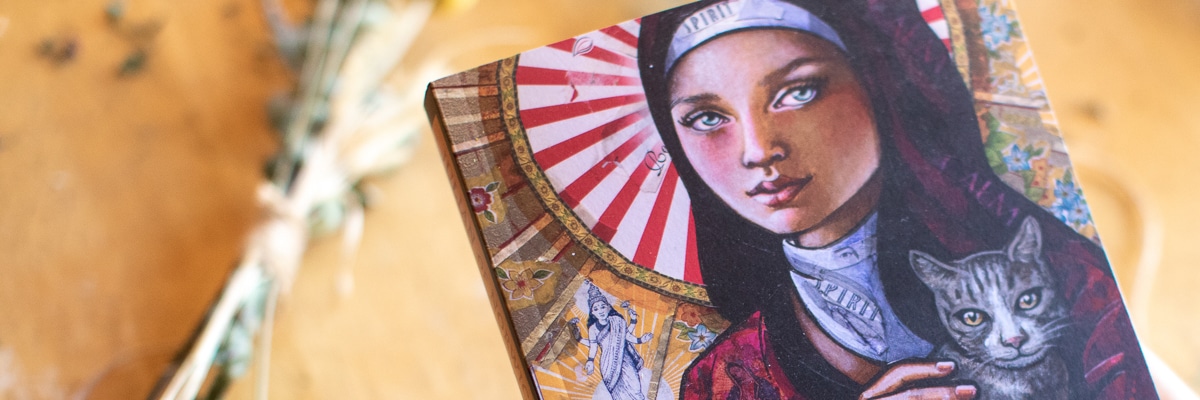
Julian’s revelations offer a loving alternative to the focus on sin which characterized the theology of her time. Mirabai Starr writes:
Julian of Norwich is known for her radically optimistic theology. Nowhere is this better illumined than in her reflections on sin. When Julian asked God to teach her about this troubling issue, he opened his Divine Being, and all she could see there was love. Every lesser truth dissolved in that boundless ocean….
Julian confesses,
The truth is, I did not see any sin. I believe that sin has no substance, not a particle of being, and cannot be detected at all except by the pain it causes. It is only the pain that has substance, for a while, and it serves to purify us, and make us know ourselves and ask for mercy. [1]
Starr clarifies where Julian located the impact of sin:
Julian informs us that the suffering we cause ourselves through our acts of greed and unconsciousness is the only punishment we endure. God, who is All-Love, is “incapable of wrath.” And so it is a complete waste of time, Julian realized, to wallow in guilt. The truly humble thing to do when we have stumbled is to hoist ourselves to our feet as swiftly as we can and rush into the arms of God where we will remember who we really are.
For Julian, sin has no substance because it is the absence of all that is good and kind, loving and caring—all that is of God. Sin is nothing but separation from our divine source. And separation from the Holy One is nothing but illusion. We are always and forever “oned” in love with our Beloved. Therefore, sin is not real; only love is real. Julian did not require a Divinity degree to arrive at this conclusion. She simply needed to travel to the boundary-land of death where she was enfolded in the loving embrace of the Holy One, who assured her that he had loved her since before he made her and would love her till the end of time. And it is with this great love, he revealed, that he loves all beings. Our only task is to remember this and rejoice.
In the end, Julian says, it will all be clear.
Then none of us will be moved in any way to say, Lord, if only things had been different, all would have been well. Instead, we shall all proclaim in one voice, Beloved One, may you be blessed, because it is so: all is well. [2]
The fact that Julian “saw no wrath in God” does not tempt her to engage in harmful behaviors with impunity. On the contrary, the freedom she finds in God’s unconditional love makes her strive even more to be worthy of his mercy and grace. Yet she does not waste energy on regret. She suggests that we, too … get on with the holy task of loving God with all our hearts and all our minds and all our strength.
References:
[1] Julian of Norwich, The Showings: Uncovering the Face of the Feminine in Revelations of Divine Love, trans. Mirabai Starr (Charlottesville, VA: Hampton Roads, 2013, 2022), 68. Selection from chap. 27.
[2] Showings, 223. Selection from chap. 85.
Mirabai Starr, introduction to The Showings, xviii–xix.
Image credit and inspiration: Jenna Keiper, The Showings, translation by Mirabai Starr (detail), 2022, photo, Albuquerque. Original translation by Mirabai Starr. Cover art by Erin Currier. Click here to enlarge image. Julian of Norwich gazes at us with calm in the midst of her blazing visions.
Story from Our Community:
The Daily Meditations have been part of my morning routine for more than a year. My soul friend and I respond to the Daily Meditations in our own journal, then we exchange responses via email. I’d like to share something I wrote: “‘All will be well,’ says Julian of Norwich. Life is so scary and uncharted. So, we stay in touch. We hold each other’s fears. We spread a contagion of hope and love.”
—MaryLou S.




